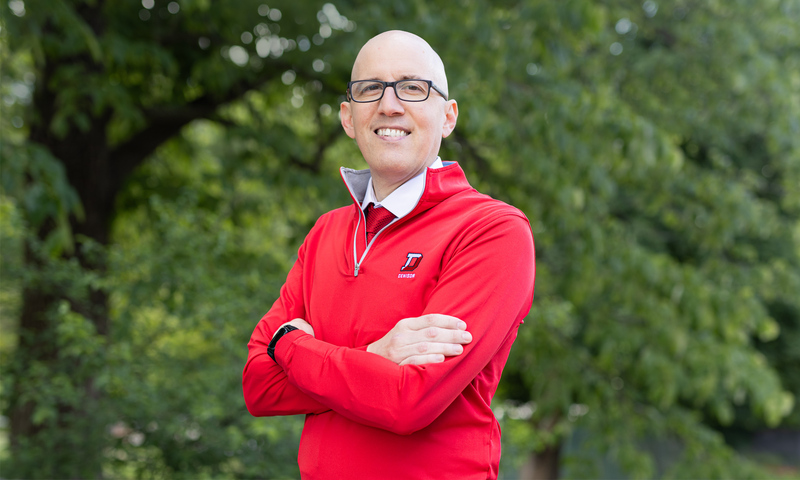An act of service can take as little time as serving a meal at the local homeless shelter. Often acts of service take place over months and have important consequences for individuals, as for the children who are tutored with the America Reads program. But it is unusual to be able to significantly impact an entire family over a single hour.
Four Denison students who volunteer through VITA, the Volunteer Income Tax Assistance program, which helps local residents prepare their tax returns, know that they’ve made a big difference in the lives of the people they help.
“Most of our clients earn between $14K and $16K per year,” said Kathy Scott, director of the VITA program in Licking County. “With the Earned Income Tax Credit, many of our clients get a refund that can amount to 30 to 40 percent of their income for the year. It’s absolutely crucial to them.”
However, even though they spend on average about an hour or two with their clients, the students invested a significant amount of time to prepare for this work, including time in the classroom.
Before they could sit down with their clients, Linna Zhou ’14, Steven Barber ’15, Sanjana Puskoor ’16 and Ashley Bartreau ’16, spent several weeks over their winter break learning tax codes, rules and regulations. Then they took an online training course with the IRS and finally obtained further certification through the Alford Center for Service-Learning.
Zhou first learned about the Earned Income Tax Credit in Associate Professor of Economics Laura Boyd’s class on labor economics. Puskoor learned of this opportunity to help through her economics class with Assistant Professor of Economics Fadhel Kaboub, who incorporated service-learning into the class’s curriculum.
Feeling at a disadvantage, because there is a much simpler tax system in her homeland of China, Zhou even went an extra step and took a class with a national tax preparation company.
But it is one thing to learn a skill online and another to put it into practice.
One of the things that an online course can’t teach you is how to communicate well. And good communication skills are critical to this process: learning how to frame questions, figuring out the right follow-up questions, talking to people about sensitive issues. Discussing financial matters with strangers requires a lot of tact and diplomacy.
“I didn’t completely anticipate that we would be working with people who have lives of such struggle,” says Puskoor, an economics major (with a math concentration) from Denver. “Some of the questions we had to ask were obviously things they had never given thought to. Their lives are not perfect little boxes.”
Puskoor’s favorite clients were those she helped through the SPARK program, which serves people with developmental disabilities. “The more we talked, the more we found ways to relate,” she says.
“The students have been terrific,” says Scott, who has directed the program since 2011. “Their positive attitudes, patience and perseverance have helped them meet the challenges of working with people on such an intimate subject. For these people who don’t have the means to hire a tax preparer, the work they do is hugely meaningful.”
This opportunity has affected the students as well. Puskoor says these experiences helped her understand her own finances better, and her friends have even begun asking her for help. Her time with VITA also has helped her solidify her decision to pursue a career that will directly benefit disadvantaged people. Zhou will look for more volunteer opportunities in Portland, Ore., where she plans to relocate after graduation this year.

